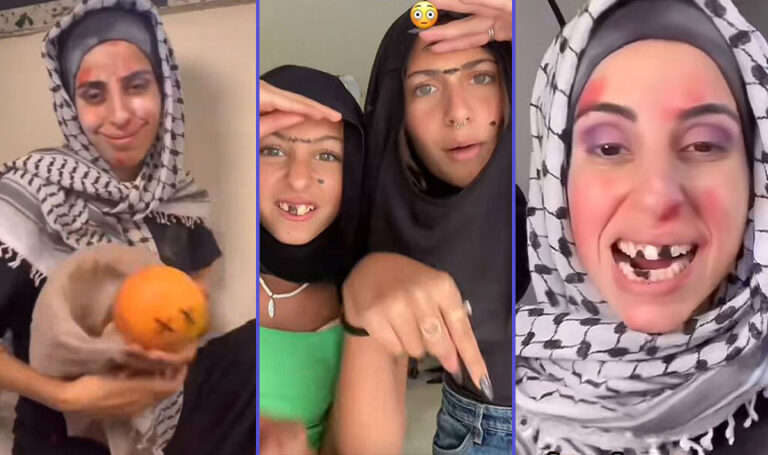Videos of Israeli content creators seemingly mocking Palestinians spark online controversy
Amid the October 2023 Israel-Hamas war, a trend saw Israeli content creators post videos of them seemingly mocking the suffering of Palestinian civilians in Gaza. Understandably, the trend gained widespread attention online, with countless netizens condemning the individuals who took part in it.
One of the earliest videos of this trend was shared by Israeli make-up artist and content creator Eve Cohen, who has since gone private on social media, but not before the clip was reposted to X on 19 October. In the video, the woman can be seen applying makeup to look like a Palestinian who has been attacked and is covered in dirt and rubble, using ketchup as fake blood on her face and mimicking the distress of a mother with a deceased child in her arms. The X repost notably featured a direct invitation to harass the creator.
Over the following days, several other videos were posted from purported Israeli accounts that have since gone private too. But that didn’t stop internet users from compiling the clips into one video.
View this post on Instagram
Following the intense backlash this trend has received, Cohen posted another video attempting to clarify her motivations. In the second clip, the creator explained that she aimed to shed light on what she referred to as “Hamas propaganda,” wherein the militant group paint fake blood onto civilians to try and make them look as though they’ve been injured, or use mannequins as fake bodies.
It has since been confirmed by Reuters Fact Check that the footage shared by Cohen was in fact filmed for a documentary by the organisation Doctors of the World about the dangers faced by Gaza residents. They were shared in 2017 by Turkish broadcaster TRT World as part of a segment on Palestinian makeup artist Mariam Salah, who worked on the documentary.
She also uploaded this video afterwards. Her Instagram account is @Eve_cohen.sfx and she turned it private after the video went viral. Disgusting. pic.twitter.com/g3MGFBRT38
— Wafa 🌻 (@AbusaifWafa) October 22, 2023
Regardless of Cohen’s justification, this trend has spread across practically every social media platform, with more Israeli content creators subsequently joining in and openly mocking Palestinian casualties as well as the humanitarian crisis it’s undergoing.
In some of these videos, creators are seen playfully flicking lights on and off or casually drinking excessive amounts of water—all actions that are in stark contrast to the dire circumstances faced by those in Gaza, many of whom are suffering greatly due to a lack of essential utilities.
The trend is also perpetuating what activists perceive to be a glaring double standard in the treatment of content, with some influencers arguing that accounts that shared posts highlighting the suffering in Gaza have faced punitive actions, including content being flagged or removed.
While these videos have sparked discussions, they also underscore the need for a more informed and nuanced approach to issues of global significance—especially ones that involve such extensive human suffering. The complexities of the Israeli-Palestinian conflict require a thoughtful and empathetic dialogue that acknowledges the real-world consequences of digital actions.






